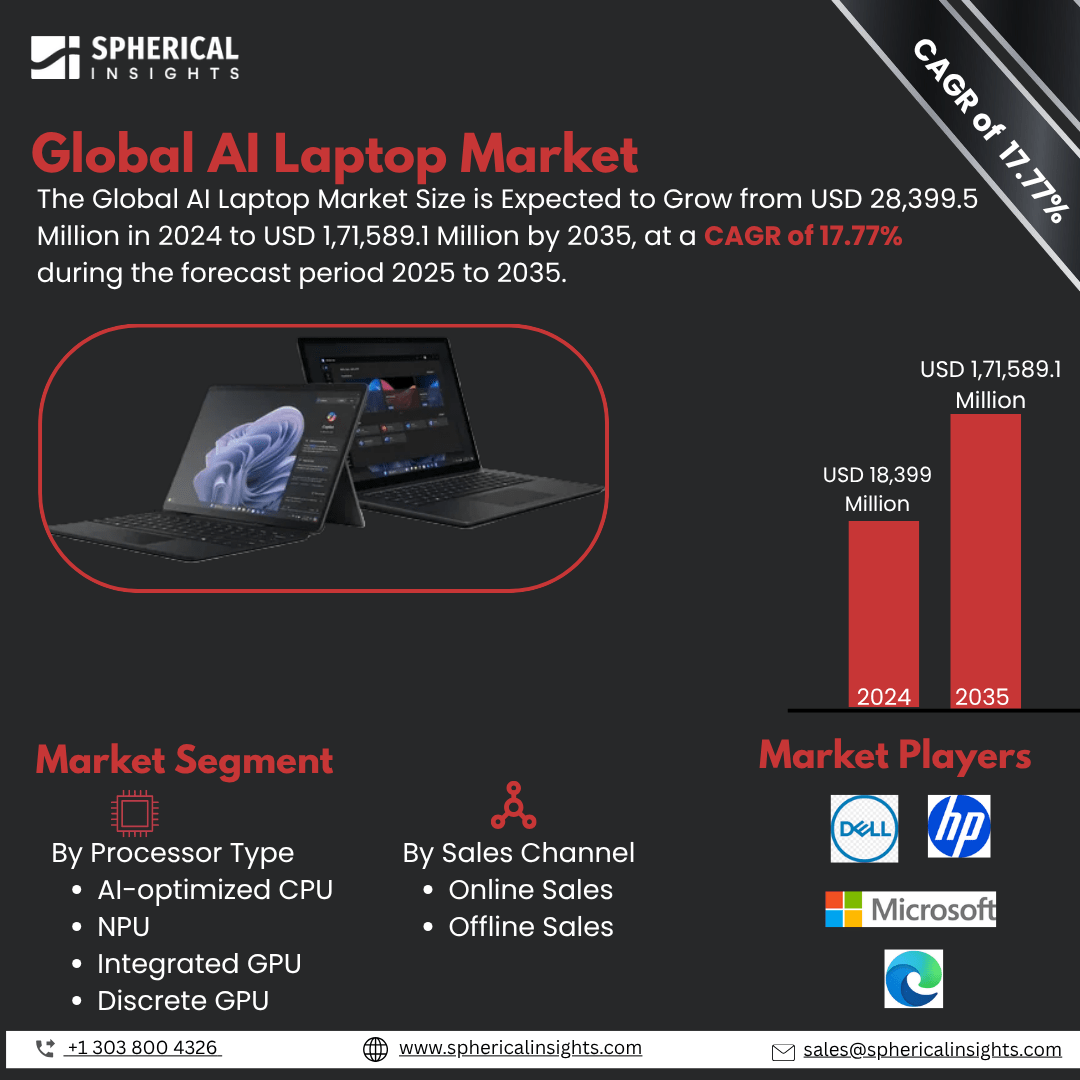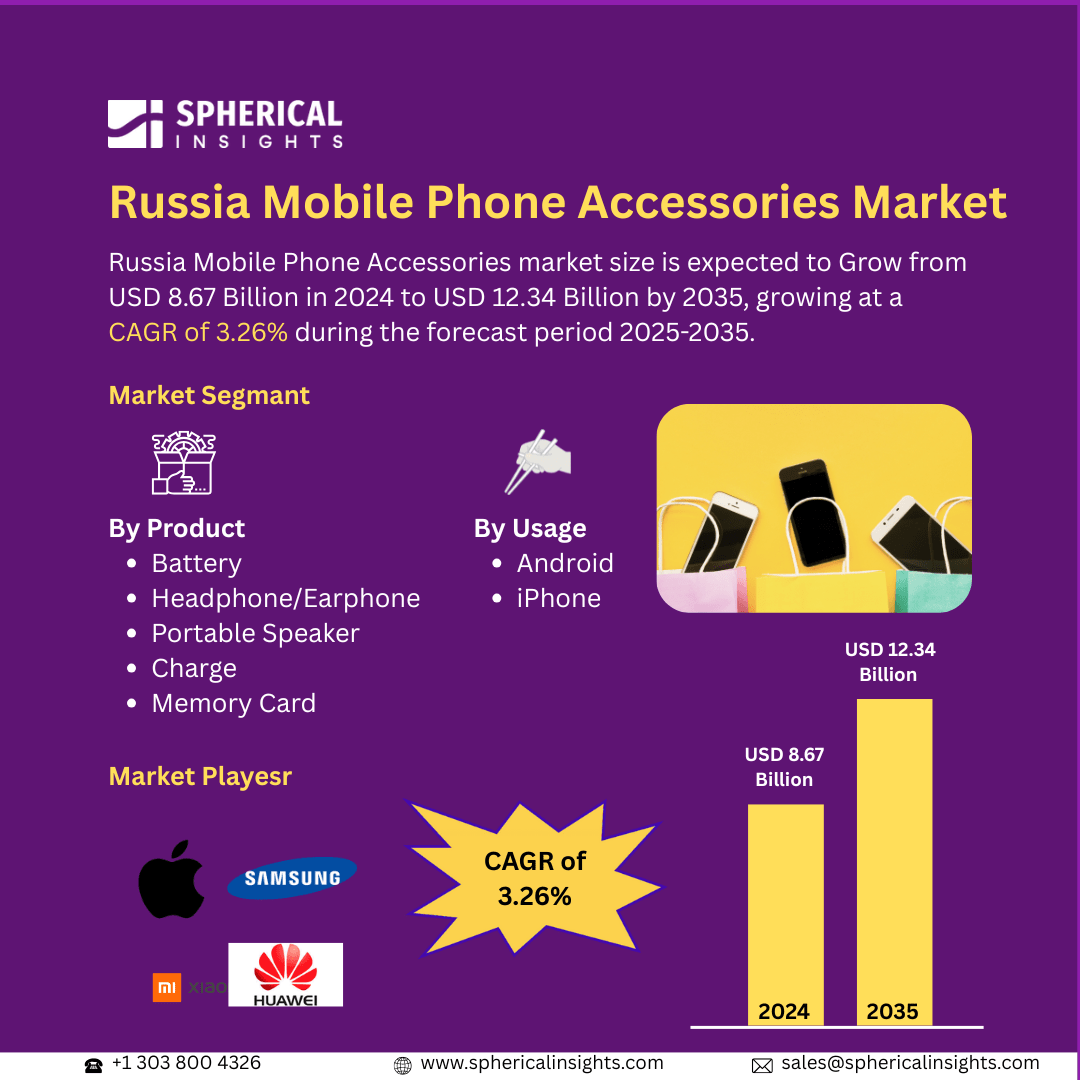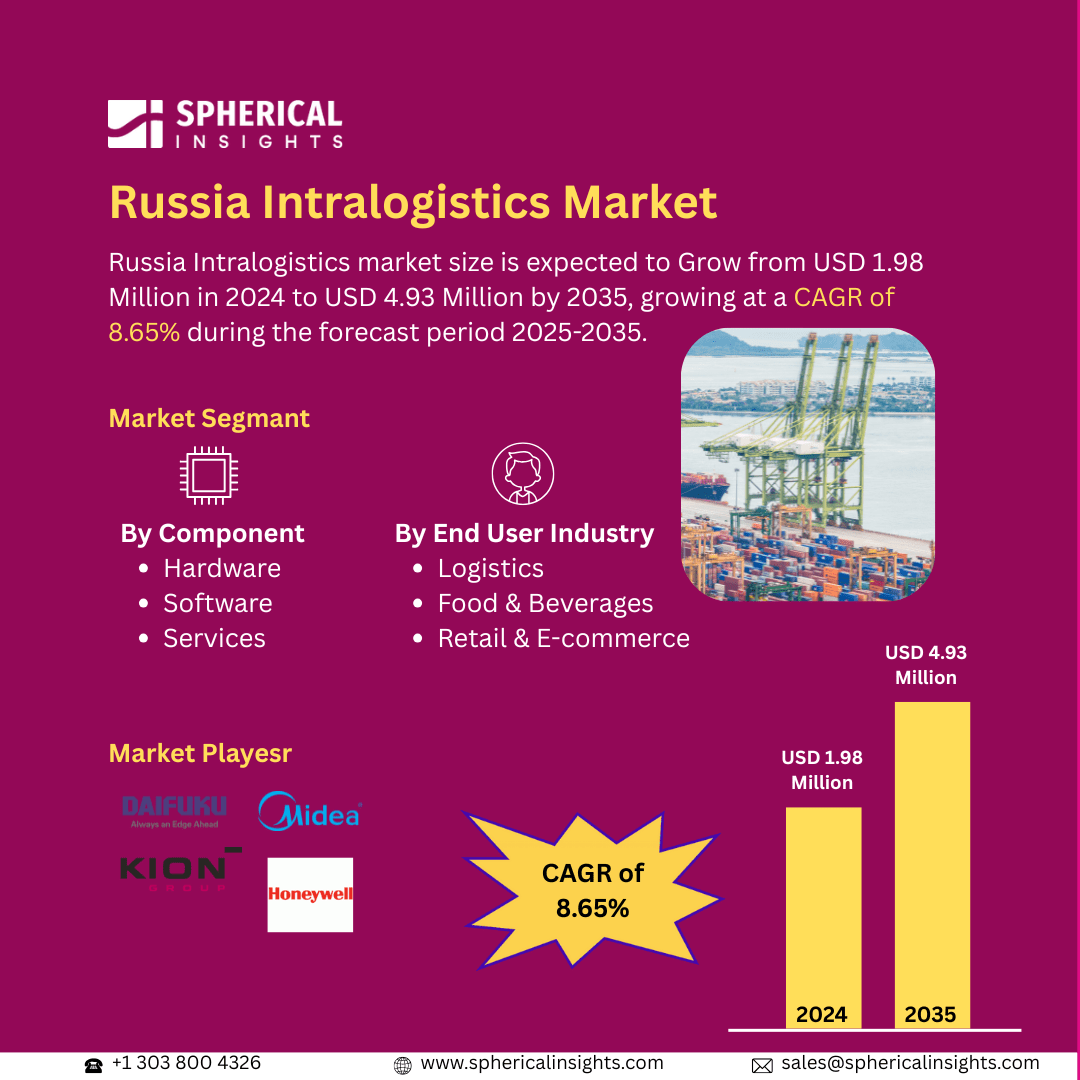Global AI Laptop Market Insights Forecasts to 2035
- The Global AI Laptop Market Size Was Estimated at USD 28,399.5 Million in 2024
- The Market Size is Expected to Grow at a CAGR of around 17.77% from 2025 to 2035
- The Worldwide AI Laptop Market Size is Expected to Reach USD 1,71,589.1 Million by 2035
- Asia Pacific is expected to grow the fastest during the forecast period.
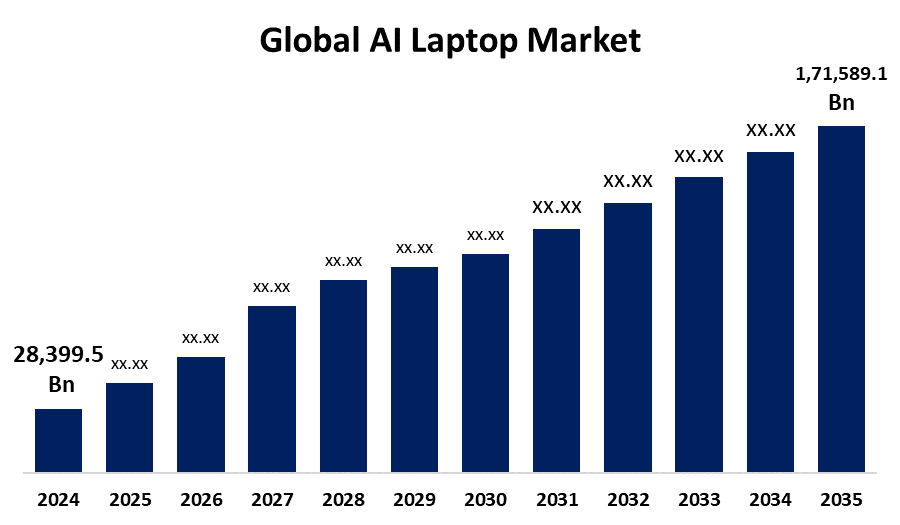
AI Laptop Market
The global AI laptop market encompasses portable computers integrated with artificial intelligence capabilities, such as neural processing units (NPUs) and AI-optimized chipsets. These laptops are designed to handle intelligent tasks locally, including speech recognition, real-time translation, image processing, and personalized user experiences without relying heavily on cloud-based AI. As of 2024, the market has experienced significant growth, driven by increasing demand for advanced computing features in both consumer and enterprise sectors. AI laptops offer enhanced performance, energy efficiency, and security by processing AI tasks directly on the device. The market is characterized by the rapid adoption of AI-enabled hardware by major laptop manufacturers, including features tailored for productivity, content creation, and automation. With continual advancements in AI chipsets and software, the AI laptop segment is emerging as a key innovation in the broader PC industry. Industry analysts project strong growth in the coming years, with increasing global adoption across various user segments.
Attractive Opportunities in the AI Laptop Market
- AI laptops can be customized for specialized sectors such as medical diagnostics, architectural design, and scientific research. On-device AI intelligence can significantly improve efficiency, accuracy, and workflow in these professional fields, creating strong demand for industry-specific AI laptops.
- AI features like real-time speech-to-text, gesture recognition, and smart screen readers can revolutionize accessibility for users with physical or cognitive challenges. Additionally, AI laptops can support interactive and adaptive learning tools, boosting education especially in remote or underserved regions.
- As digital infrastructure improves globally, there is a promising opportunity to introduce affordable AI laptops tailored to the needs of emerging markets. This expansion can tap into large populations with rising disposable incomes, accelerating adoption and market growth.
Global AI Laptop Market Dynamics
DRIVER: Integration of dedicated AI processors such as NPUs
The expansion of the global AI laptop market is driven by a combination of technological innovation and evolving user needs. A major catalyst is the integration of dedicated AI processors such as NPUs, which allow laptops to perform intelligent tasks like real-time language translation, facial recognition, and smart editing directly on the device without relying on cloud infrastructure. This on-device intelligence leads to faster performance, improved data privacy, and reduced energy consumption. The rise of hybrid work and increased digital collaboration has further boosted demand for laptops that can adapt to user behavior and optimize system performance automatically. As generative AI tools become more widespread in fields such as content creation, software development, and education, there is a growing need for devices capable of managing complex AI workloads. With leading manufacturers embedding AI features into a broad range of models, the market is set for strong growth, transforming everyday computing into a more intelligent experience.
RESTRAINT: Elevated cost of AI-integrated laptops
A key restraint is the elevated cost of AI-integrated laptops, as incorporating advanced components like neural processing units and AI-optimized processors increases production expenses. This makes AI laptops less affordable for average consumers, limiting widespread adoption. Another concern is the limited awareness among general users about how AI features truly enhance everyday tasks, which often leads to underutilization of built-in capabilities. Many software applications are still not fully optimized to take advantage of on-device AI, reducing the practical impact of these technologies. Additionally, data privacy concerns persist, especially among users uncertain about how locally processed data is stored or secured. There are also engineering challenges, such as balancing power efficiency with performance, as AI tasks can strain battery life and generate more heat. These factors collectively pose obstacles to the seamless integration of AI laptops into mainstream computing.
OPPORTUNITY: Tailoring AI laptops for niche professional fields
The AI laptop market offers distinct opportunities that go beyond typical growth factors. One key area is the potential to revolutionize accessibility, with AI features enabling real-time speech-to-text, gesture recognition, and smart screen readers for users with physical or cognitive challenges. The education sector also holds promise, where AI laptops can support interactive, adaptive learning tools and remote classroom engagement, especially in underserved regions. Another opportunity lies in tailoring AI laptops for niche professional fields, such as medical diagnostics, architectural design, or scientific research, where on-device intelligence can improve efficiency and accuracy. Expansion into emerging economies presents a chance to introduce cost-effective AI solutions adapted for local needs, particularly as digital infrastructure improves. Moreover, collaborations between AI hardware makers and cloud service providers can lead to hybrid models that blend local processing with cloud connectivity, enhancing performance and flexibility. These emerging opportunities position AI laptops as versatile tools for a smarter, more inclusive digital future.
CHALLENGES: Fast-paced advancement of AI technology
Navigating the AI laptop market comes with a set of unique challenges that go beyond common obstacles. One key issue is the fast-paced advancement of AI technology, which forces manufacturers to regularly upgrade both hardware and software, potentially shortening product lifespans and increasing development expenses. Designing AI features that enhance usability without overwhelming users presents another challenge, as complicated functions can hinder widespread acceptance. Additionally, ensuring smooth compatibility across varied software environments, especially in enterprises relying on legacy systems, complicates deployment. Data security is a growing concern, as on-device AI processes sensitive information that must be protected from emerging cyber threats. Furthermore, educating users to fully leverage AI capabilities is essential but difficult, particularly among less tech-savvy audiences. Finally, achieving a balance between scaling production, maintaining quality, and keeping prices competitive remains a significant challenge, often limiting opportunities for smaller innovators in the market.
Global AI Laptop Market Ecosystem Analysis
The global AI laptop market ecosystem involves hardware manufacturers like Dell, HP, and Apple working with AI chip designers such as Intel and NVIDIA to embed neural processing units. Software developers create AI applications and frameworks that enhance on-device intelligence. Cloud providers support hybrid AI solutions combining local and cloud processing. Component suppliers ensure performance and efficiency. End users, from businesses to consumers, drive demand and innovation. Research institutions and startups also play a vital role by advancing AI hardware and software integration.
Based on the processor type, the AI-optimized CPU segment led the market with the largest revenue share over the forecast period
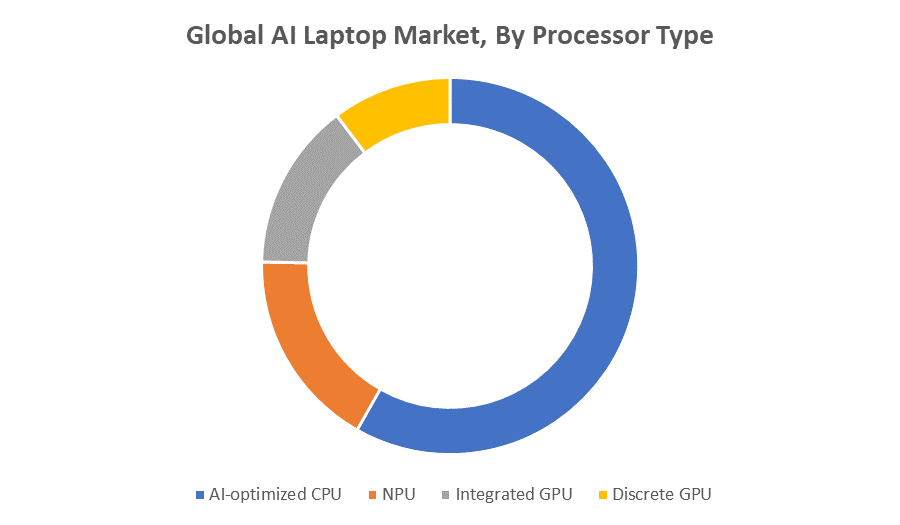
The AI-optimized CPU segment dominance is driven by the growing adoption of CPUs specifically designed to handle AI workloads efficiently, such as machine learning tasks, natural language processing, and real-time data analysis. AI-optimized CPUs offer improved performance, faster processing speeds, and lower power consumption compared to traditional processors, making them ideal for AI-enabled laptops. Their ability to execute complex algorithms directly on the device enhances user experience by enabling quicker responses and reducing reliance on cloud computing. Additionally, manufacturers are increasingly integrating these specialized CPUs into a wide range of laptop models, from high-end to mainstream, further expanding their market presence and driving overall revenue growth in this segment.
Based on the sales channel, the offline segment is expected to grow at the fastest CAGR during the forecast period
Despite the rise of e-commerce, many consumers still prefer purchasing AI laptops through physical retail stores due to the opportunity to experience the product firsthand, receive personalized assistance, and access immediate after-sales support. Offline stores also allow buyers to compare different models directly, enhancing their confidence in making informed decisions. Additionally, manufacturers and retailers are increasingly investing in immersive in-store experiences and AI demonstrations to attract customers. In emerging markets, where internet penetration and digital literacy may be limited, offline sales channels remain particularly important. These factors contribute to the accelerated growth of the offline segment compared to online channels in the AI laptop market.
North America is anticipated to hold the largest market share of the AI laptop market during the forecast period
North America is expected to maintain the largest market share in the AI laptop market throughout the forecast period. This leadership is driven by the region’s strong presence of major technology companies, advanced research and development infrastructure, and early adoption of cutting-edge AI technologies. High demand from enterprises, government agencies, and educational institutions for AI-enabled laptops further fuels market growth. Additionally, the region benefits from well-established distribution networks and a consumer base that values innovation and premium computing devices. The concentration of AI chip manufacturers and software developers in North America also accelerates the integration of AI capabilities in laptops. These factors combined position North America as the dominant region in the AI laptop market during the coming years.
Asia Pacific is expected to grow at the fastest CAGR in the AI laptop market during the forecast period
Asia Pacific is projected to experience the fastest CAGR in the AI laptop market during the forecast period. This rapid growth is driven by increasing digitalization, rising disposable incomes, and expanding internet penetration across countries like China, India, Japan, and South Korea. The region’s large population and growing middle class are fueling demand for advanced computing devices, including AI-enabled laptops. Additionally, government initiatives promoting smart technologies and AI adoption are accelerating market expansion. The presence of numerous manufacturing hubs and tech startups further supports innovation and competitive pricing, making AI laptops more accessible. Together, these factors contribute to Asia Pacific emerging as the fastest-growing market for AI laptops in the coming years.
Recent Development
- In August 2024, Microsoft Surface Laptop 5G launched. This device features a 40+ TOPS Neural Processing Unit (NPU), Intel Core Ultra processors, and integrated 5G connectivity, catering to business users requiring high mobility and constant connectivity.
Key Market Players
KEY PLAYERS IN THE AI LAPTOP MARKET INCLUDE
- Dell Technologies
- HP Inc.
- Lenovo Group Limited
- Apple Inc.
- Acer Inc.
- ASUS
- Microsoft Corporation
- Samsung Electronics
- MSI (Micro-Star International)
- Razer Inc.
- Others
Market Segment
This study forecasts revenue at global, regional, and country levels from 2020 to 2035. Spherical Insights has segmented the AI laptop market based on the below-mentioned segments:
Global AI Laptop Market, By Processor Type
- AI-optimized CPU
- NPU
- Integrated GPU
- Discrete GPU
Global AI Laptop Market, By Sales Channel
- Online Sales
- Offline Sales
Global AI Laptop Market, By Regional Analysis
- North America
- Europe
- Germany
- UK
- France
- Italy
- Spain
- Russia
- Rest of Europe
- Asia Pacific
- China
- Japan
- India
- South Korea
- Australia
- Rest of Asia Pacific
- South America
- Brazil
- Argentina
- Rest of South America
- Middle East & Africa
- UAE
- Saudi Arabia
- Qatar
- South Africa
- Rest of the Middle East & Africa
